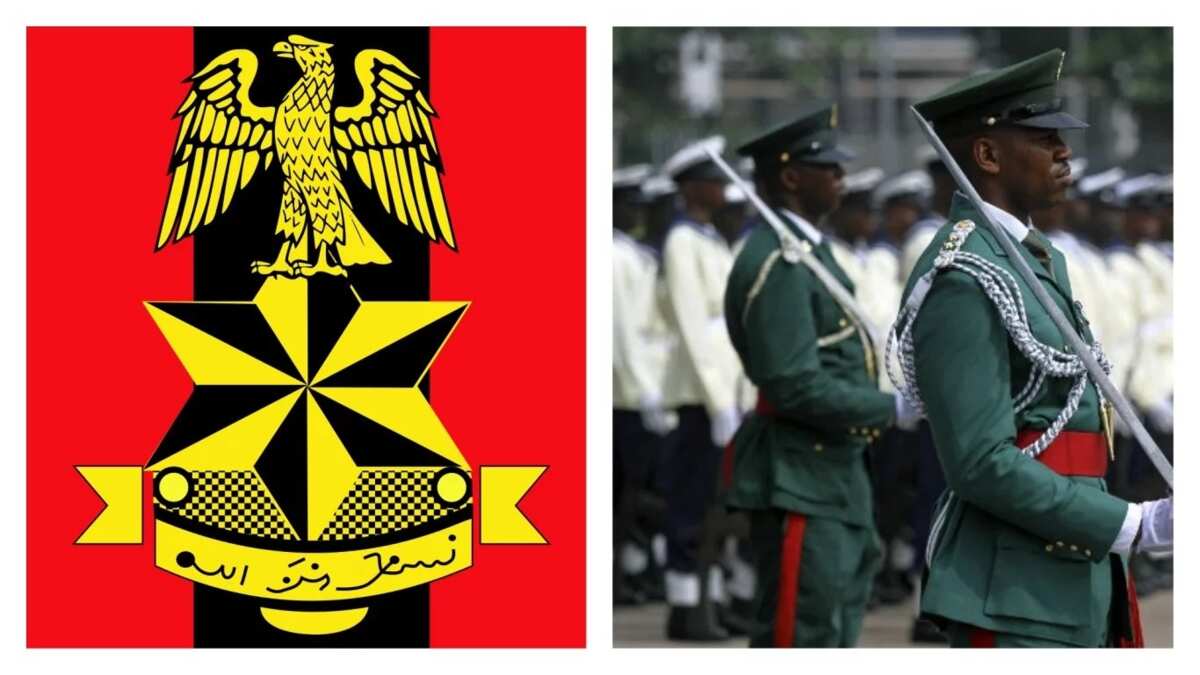Army ranks in Nigeria play a crucial role in the military structure, influencing the organization, command, and operational effectiveness of the armed forces. The Nigerian Army, as one of the key components of the Nigerian Armed Forces, has a well-defined ranking system that outlines the hierarchy and responsibilities of its personnel. This article will delve into the various ranks within the Nigerian Army, their significance, and the journey individuals take to ascend through these ranks.
The Nigerian Army's ranking system is not just a matter of titles; it reflects the training, experience, and responsibilities that come with each position. Understanding these ranks is essential for anyone interested in military careers, defense studies, or simply understanding the structure of one of Africa's largest armies. This guide will provide insights into the ranks, their respective roles, and how they compare to military ranks in other nations.
Additionally, we will explore the criteria for promotions, the training involved, and the impact of these ranks on military operations. Whether you are a student of military history, a potential recruit, or simply curious about the Nigerian Armed Forces, this article will equip you with the knowledge you need about army ranks in Nigeria.
- Nia Malika Hendersons Wife A Look Into The Life Of The Journalists Partner
- Exploring The Enigma Of Odishamms A Cultural Journey
Table of Contents
- Overview of the Nigerian Army
- The Rank Structure of the Nigerian Army
- Commissioned Officers Ranks
- Non-Commissioned Officers Ranks
- Enlisted Personnel Ranks
- Promotion Criteria in the Nigerian Army
- Training and Education for Ranks
- Conclusion
Overview of the Nigerian Army
The Nigerian Army, established in 1960, is the land branch of the Nigerian Armed Forces. Its primary responsibilities include defending the territorial integrity of Nigeria, maintaining peace and security, and engaging in internal security operations. The army is comprised of various units and formations, each specializing in different operational roles.
As of recent reports, the Nigerian Army has made significant strides in modernizing its ranks and equipment to effectively counter contemporary security challenges, including terrorism and insurgency. The rank structure is fundamental in ensuring that the army operates smoothly, with clear lines of authority and command.
The Rank Structure of the Nigerian Army
The rank structure of the Nigerian Army is divided into three main categories: Commissioned Officers, Non-Commissioned Officers (NCOs), and Enlisted Personnel. Each category serves a distinct function within the military framework, contributing to the overall mission of the army.
- Unveiling The Life Of Mehdi Hasan A Glimpse Into His Personal Life Through His Wifes Pictures
- Unraveling The Life Of Teresa Terry A Journey Through Triumphs And Trials
Commissioned Officers
Commissioned Officers are the leaders in the Nigerian Army, responsible for strategic decision-making and command. They typically hold a degree from a military academy or university and undergo rigorous training before being commissioned. The ranks of commissioned officers include:
- Lieutenant
- Captain
- Major
- Lieutenant Colonel
- Colonel
- Brigadier General
- Major General
- Lieutenant General
- General
Non-Commissioned Officers (NCOs)
NCOs serve as the backbone of the army, providing leadership and guidance to enlisted personnel. They are typically promoted from the ranks of enlisted soldiers and play a crucial role in operational effectiveness. The NCO ranks include:
- Corporal
- Sergeant
- Staff Sergeant
- Warrant Officer
Enlisted Personnel Ranks
Enlisted personnel comprise the majority of the Nigerian Army and are the soldiers who carry out the day-to-day operations. They are often the first responders in combat situations and play vital roles in various military operations. The ranks within enlisted personnel include:
- Private
- Private First Class
- Corporal
Promotion Criteria in the Nigerian Army
Promotion within the Nigerian Army is based on a combination of factors including time in service, performance evaluations, and completion of required training courses. For commissioned officers, promotions are also influenced by the needs of the army and available positions.
- Performance: Officers and NCOs are evaluated based on their leadership skills, operational effectiveness, and contributions to unit success.
- Time in Service: Each rank has a minimum time requirement that must be met before an individual is eligible for promotion.
- Training: Completion of specific military education and training programs is often mandatory for higher ranks.
Training and Education for Ranks
Training is essential for all members of the Nigerian Army, ensuring that they are equipped with the necessary skills and knowledge to perform their duties. The training programs vary by rank and role, with higher ranks requiring more extensive education.
Enlisted personnel typically undergo basic training, while NCOs and commissioned officers attend advanced military schools for specialized training in leadership, tactics, and strategy.
Conclusion
In summary, understanding army ranks in Nigeria is fundamental to appreciating the structure and function of the Nigerian Army. From commissioned officers to enlisted personnel, each rank plays a critical role in the defense and security of the nation. As the Nigerian Army continues to evolve, so too will the standards and expectations for those who serve.
We encourage you to leave a comment below, share this article with others, or explore more content on our site related to military structures and rankings worldwide.
Final Thoughts
Thank you for taking the time to learn about the ranks in the Nigerian Army. We hope this article has provided you with valuable insights and knowledge. We invite you to return for more articles on military topics and other areas of interest.


